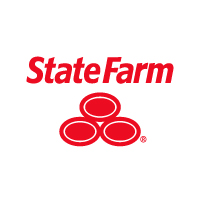Need extra money? There can be advantages to borrowing from your whole or universal life policy. Here's how to do it.
If you need funds to help start a business, pay college tuition, or anything else, you may not have to ask a bank for a loan. If you have permanent whole or universal life insurance – sometimes called "cash value life insurance" – in addition to providing valuable death benefit protection, the policy has a cash value that builds over time.1,2 Policy cash value is an a-set that you can borrow against, and life insurance policy loans are typically easier to get than a bank loan. Plus, you don't have to tell the lender what you want to do with the money. However, there are other advantages to a policy loan, and there can be disadvantages as well. This article can help you understand:
For starters, you have to have the right kind of life insurance policy. There are two main types of life insurance: term life and permanent life. Only permanent policies build cash value. Term life insurance is less expensive, but coverage is temporary, and there's no cash value component, so there's nothing to borrow money against. That's why term life is sometimes called "pure life insurance": it's designed to provide an insurance payout for your beneficiaries if you pass away (the policy's death benefit) but nothing else.
Permanent life insurance policies are available in two primary forms: whole life insurance and universal life insurance. With these policies, part of your money goes toward a cash value every time you pay a premium, where it builds over time. The rate of cash value growth varies by policy: with whole life, there is typically a set rate of interest, while in some universal policies, cash value growth can be tied to market investments. Either way, the cash value grows tax-deferred - like a retirement account.3 But unlike with IRAs, it can be easy to use the cash value as collateral for a loan.
The application process tends to be relatively easy, and your insurance agent can help with any issues. Generally speaking, you have to fill out a simple form, either on paper or online, verify your identity, and submit it. Unlike a traditional loan, there's no income or credit check, and your credit score does not affect approval or the interest rate. Because it is fully collateralized by your policy's cash value, the approval process is generally quick, and the loan interest rate is typically lower than a personal loan or even a home equity loan. The money may be deposited into your account within a few days.
Each life insurance company sets its own rules about how much money you can borrow from your policy, but you can typically get a policy loan for up to 90% of the value in your policy. And unlike most loans, there's no set repayment period: you can pay it back in ten months, ten years, or longer -- but if you pass away in that time, any outstanding loan balance will typically be deducted from your death benefit.



:max_bytes(150000):strip_icc()/GettyImages-1129377185-bc23c4ba33e74927b65cccba11578b3e.jpg)




:max_bytes(150000):strip_icc()/State_Farm_recirc_image-43af5e80de594cadab4e2a5adf8bb4e9.jpg)









